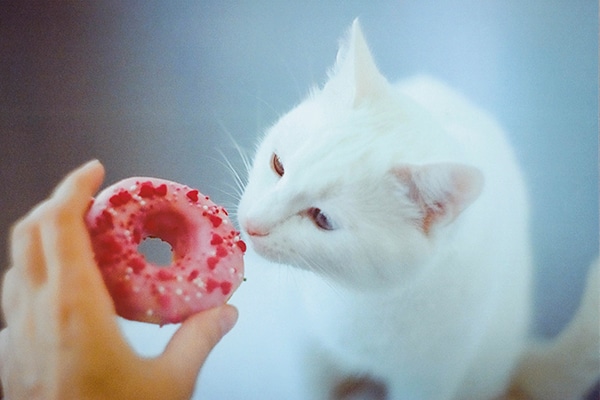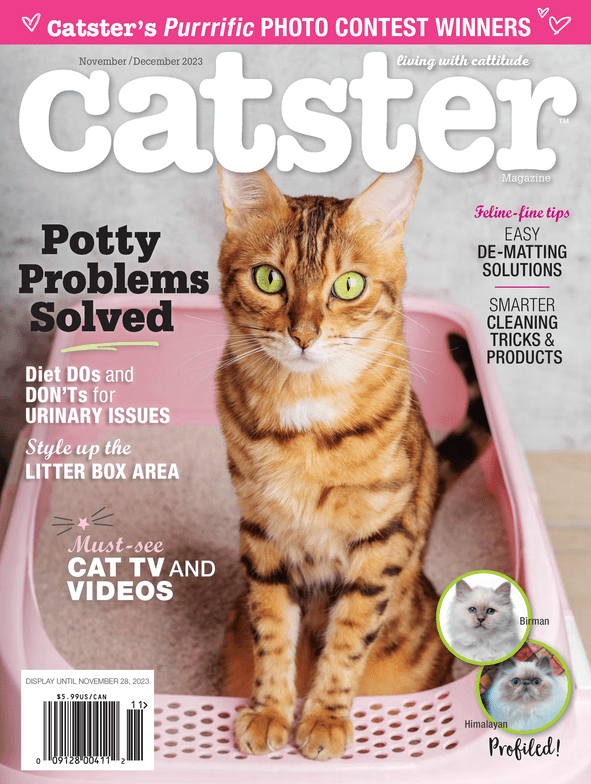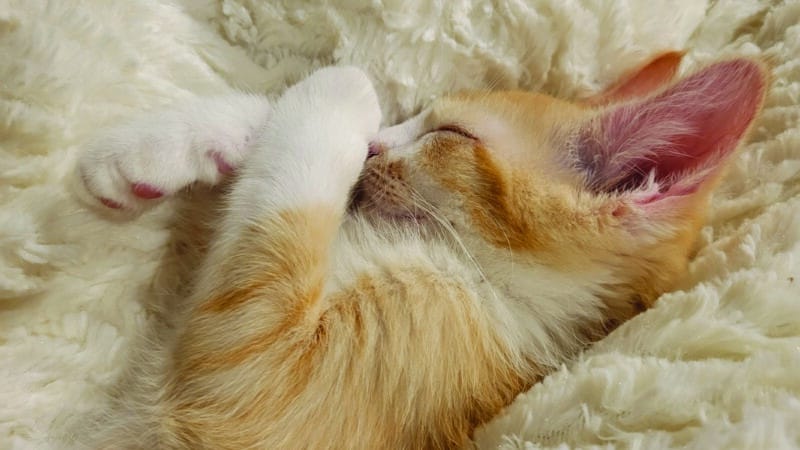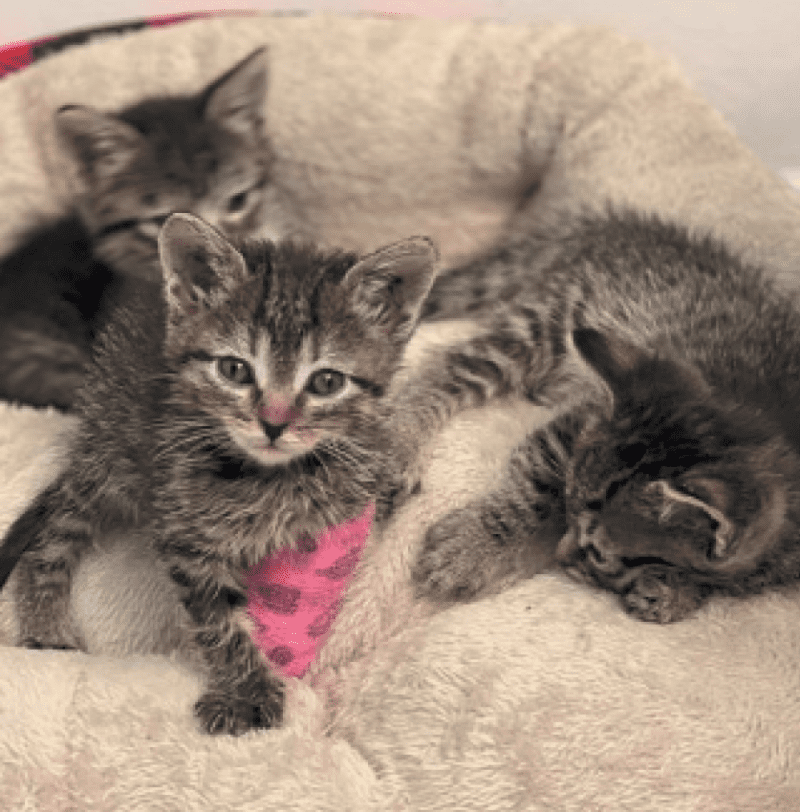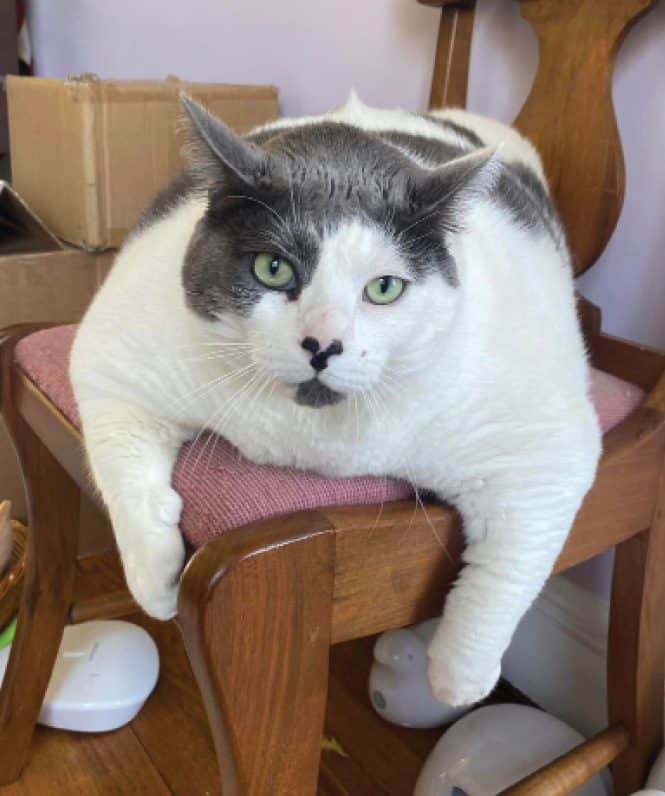If you have a dog, you probably know that chocolate is very toxic to our canine friends. But what about cats and chocolate? Can cats eat chocolate? Is chocolate toxic to cats, too? The answer, as it turns out, is pretty complicated.
1. First off, can cats eat chocolate?
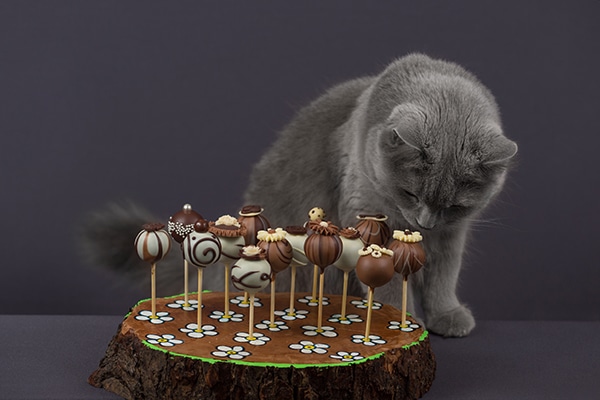
“If ingested, chocolate can cause gastrointestinal [distress], such as vomiting and diarrhea, and increased heart rates,” says Stephanie Demarco, DVM, of VCA Kirkwood Animal Hospital in Newark, Delaware. “However, if enough chocolate is ingested, it can lead to much more serious problems, such as seizures, coma and death. So, yes, chocolate is toxic to cats.
2. Cats aren’t likely to eat chocolate, though.
“Luckily, cats don’t have a sweet tooth like dogs do, so it is less commonly seen than in dogs,” Dr. Demarco explains. Cats lack a taste receptor for “sweet”— they literally cannot taste sweet substances. This makes cats and chocolate an unlikely combination. Unlike your dog, your kitty is highly unlikely to scarf down your candy bar or sample a pan of brownies cooling on the counter.
3. Two components in chocolate are dangerous to cats.
The stimulants theobromine and caffeine pose no risk to humans, but can cause serious problems in both dogs and cats.
4. Some types of chocolate are worse for cats.
The darker the chocolate, the more concentrated it is, which means it contains more theobromine. Baker’s chocolate and dark chocolates are the worst for cats to ingest, but semi-sweet and milk chocolates can cause issues in large enough quantities. White chocolate poses no risk (white chocolate contains only trace amounts of theobromine and caffeine).
Types of chocolate from most (the worst chocolate for cats) to least toxic for cats:
- Unsweetened dry cocoa powder
- Baking chocolate
- Dark chocolate (above 60 percent cacao)
- Semi-sweet/bittersweet chocolate
- Milk chocolate
- White chocolate (white chocolate is not a problem, as it contains none of the dangerous methylxanthines found in true chocolate products)
5. If your cat ingests chocolate, seek veterinary treatment immediately.
When it comes to cats and chocolate, the seriousness of the situation depends on how much and what type of chocolate your kitty ate. “The best thing to do is get medical advice from your veterinarian,” Dr. Demarco advises. “You can also call the ASPCA Animal Poison Control Center hotline [888-426-4435] to see if the amount and type of chocolate ingested needs medical treatment.”
6. Whatever you do, don’t try to induce vomiting at home.
Although inducing vomiting is commonly recommended for dogs who ingest certain toxins, inducing your cat to vomit is risky. “At no point should you try to make your cat vomit,” Dr. Demarco says. “It may not be necessary or recommended, or it may even be considered dangerous, depending on the situation.” Always consult a veterinarian if you think your cat has ingested something toxic.
7. Err on the side of caution and keep chocolate — and any candy — away from your cat.
Even though cats are unlikely to eat sugary treats, it’s best to keep chocolate and other candy safely out of reach, especially around kittens, who are more likely to experiment and eat weird things.
A note on xylitol and cats
Xylitol isn’t in chocolate, but it is in things like sugar-free gum and candy. Cats aren’t likely to eat sweets, but if they do, the good news is that xylitol is not toxic to cats. Xylitol is extremely toxic to dogs though, so if you have a dog who ingests a product containing xylitol, seek immediate veterinary treatment.
Thumbnail: Photography ©Mirrelley | iStock / Getty Images Plus.
Although chocolate isn’t good for cats, check out these reasons why it’s good for you:
- Is Dark Chocolate Healthy? 5 Reasons to Indulge Your Sweet Tooth
- Chocolate Benefits for Your Brain: Improves Memory and Mood
Read more about what cats can eat on Catster.com:

